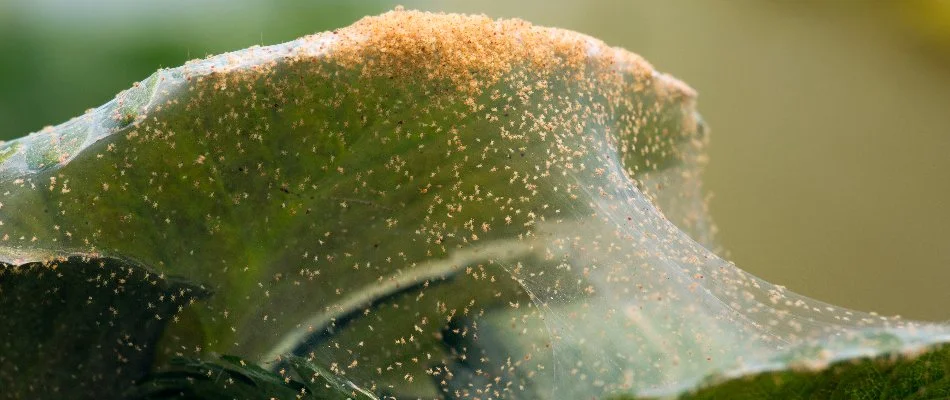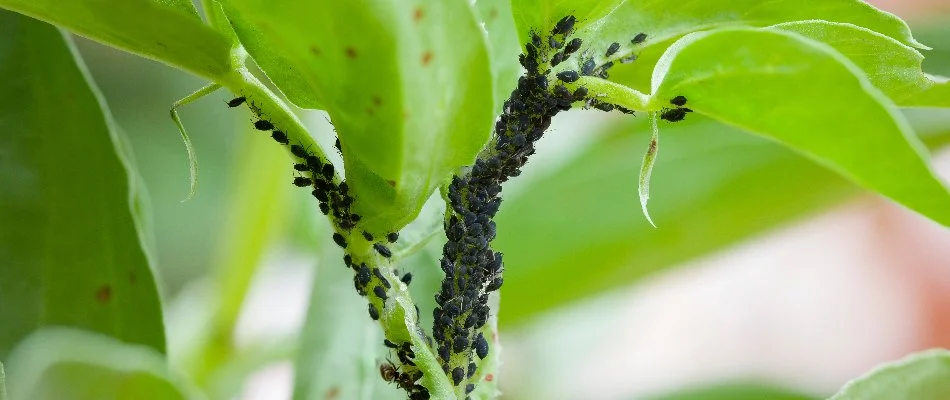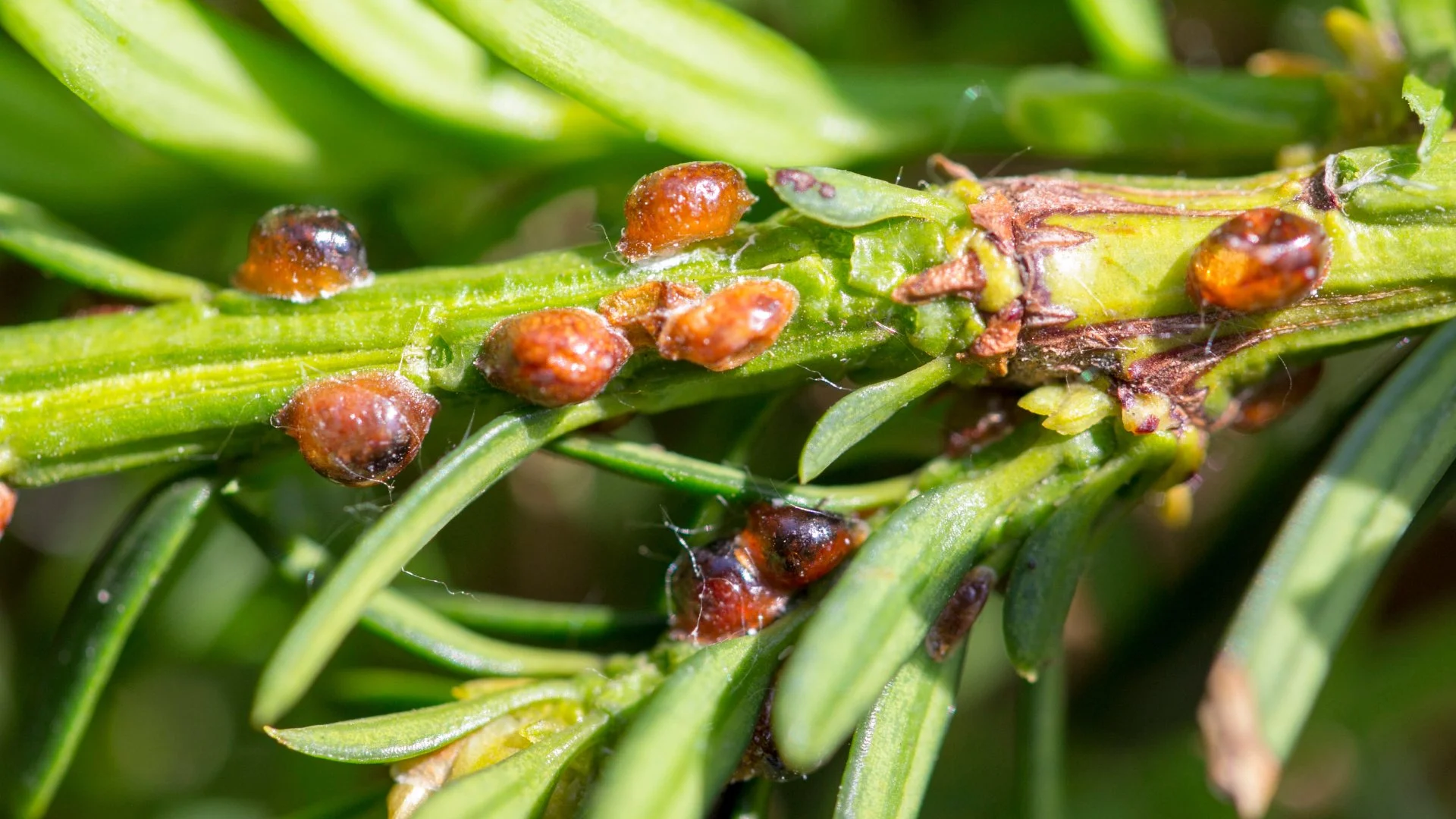Here in New Jersey, you'll want to be on the lookout for a few specific plant insects that can cause problems for your trees and shrubs. Three of these include scale, spider mites, and aphids. Scale is a type of soft-bodied insect that feeds on sap. Spider mites feed on leaves, stems, and flowers by piercing them with their mouthparts to suck out fluids from inside the plant tissue. Aphids are small, pear-shaped insects that, just like scale, feed on plant sap as well as stems, leaves, and roots. While each of these three plant insects can cause various forms of damage to your trees and shrubs throughout the year, there are ways to protect your property from all of them!
1. Scale
Scales are oval-shaped insects that attach to the stems and branches of trees and shrubs. They come in many different colors, ranging from yellow, white, brown, red, green, and black. A scale infestation typically doesn't harm your trees and shrubs until after heavy egg-laying in the late summer. This is because only the female scales survive winter dormancy and begin laying eggs once spring arrives. The best way to identify a scale infestation is by looking for sticky substances called honeydew on tree and shrub surfaces. Honeydew is produced by scale and other soft-bodied insects when they feed on sap. Additionally, if you notice any sooty mold growing on your trees and shrubs, it's likely caused by honeydew.
It takes 6 to 15 months for scales to complete their life cycle, depending on the species and environmental conditions.
2. Spider Mites

Spider mite damage often resembles drought stress because it commonly appears as wilting leaves or yellowing foliage. However, unlike drought stress, spider mite-infested plants have webbing covering the affected areas. These tiny pests are about 1/25th of an inch long and can be difficult to detect with the naked eye. They prefer warm temperatures and dry conditions, making them especially problematic during the summer here in New Jersey. Their life cycle is relatively quick, and female spider mites can produce multiple generations per season. What makes them particularly tricky to deal with is their ability to spread quickly and remain undetected until extensive damage has already been caused.
3. Aphids

Aphids are another prevalent insect that affects both trees and shrubs here in New Jersey. Aphids are small, pear-shaped insects that suck sap from plants and can be identified by their relatively large eyes. There are many different species of aphids, each varying in color depending on what kind they are. Similar to other insects, aphid populations tend to increase with adequate food, moisture, and shelter. Aphid invasions often occur in clusters near new buds, developing flowers, or tender shoots. Not only can aphids negatively affect the health of your trees and shrubs, but they can also transmit viruses between plants via their saliva. This means that even if your plants are healthy, they can still be infected by viruses carried by aphids.
If you are looking for plant health services in New Jersey, give us a call today to schedule an appointment!
Protect your precious plants from pesky insects and keep them healthy with our top-notch tree and shrub insect and disease control service here at Stream Line Lawn & Landscape! Our team of experts will help you stay ahead of the game and prevent potential pest problems from becoming major issues or will help you eliminate them. In order to help your trees and shrubs even more, we also offer our tree and shrub fertilization service. Our services are available to commercial and residential properties in Westfield, NJ, as well as other nearby areas such as Watchung and Warren.
Don't let insects ruin all the hard work you've put into your garden. Contact us today at (833) 452-9666 to schedule our tree and shrub insect control service or to learn more about how we can help you keep your garden thriving year-round!



Comments (0)
Thanks for your comment!
Thanks for your feedback! Your comments have been successfully submitted! Please note, all comments require admin approval prior to display.
Error submitting comment!
There is a problem with your comment, please see below and try again.